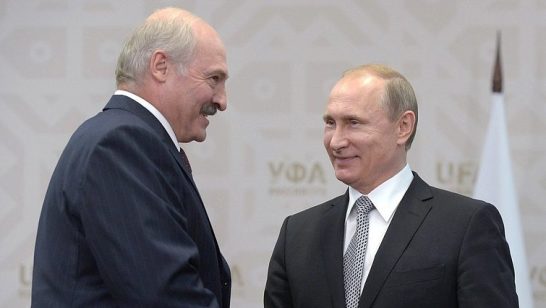Statement for the Public Hearing of the Budget Committee of the Bundestag, 9 May 2022 on the draft legislation of the Federal Government for a change of the Constitution (Art. 87 a) and draft legislation of the Federal Government on the establishment of a special fund (“Sondervermögen Bundeswehr”)
English translation. The original version can be found here
- Introduction
Russia’s war of aggression against Ukraine challenges the Euro-Atlantic community in a way that was unprecedented after the Cold War. While Eastern European countries and the Baltic and Nordic states have managed to adapt their threat perception vis-à-vis Russia after the illegal annexation of Crimea, Germany has underestimated Moscow’s military (and nuclear) modernisation as well as its aggressive hybrid activities. Existing risks and evolving threats have not been addressed adequately nor were not taken seriously.[1]
The underestimation of the threat to Europe’s security architecture, which Moscow posed for several years, led – among other things – to a decreasing readiness of the Bundeswehr through capability gaps and lack of modernisationdespite gradually increasing defence budgets. The Federal Government, therefore, needs to act in a swift and decisive manner to significantly improve the readiness of the armed forces. Yet, they also must handle the issue with strategic foresight and should not focus solely on a narrow understanding of security. Instead, they should define security in a wider sense to include military-technical equipment for the Bundeswehr, especially cybersecurity, electronic reconnaissance, analysis, strategic foresight, and risk reduction.
- A wider definition of security
The growing complexity of security policy and defence challenges across different dimensions has led,inthe past decades, to an extension of the classical concept of military policy to incorporate economic and environmental policy aspects,as well as human security. Traditionally, the assumptions over the military might of a potential adversary were based on a degree of certainty; today, hazy, intertwined risks and threats are dominating (Daase, 2010).
This is complemented by a shift of the focus of security policy from the national to a multinational/international level, the potential borderless nature of conventional conflicts, and tactics of hybrid and political warfare. The response to these threats should ideally be a combination of measures, from foreign and development policy to the defence spectrum. This approach flows into a wider understanding of what security policy can achieve and higher expectations of what it should achieve, and not least, an increasing overlap of responsibilities.
To pay attention to the growing complexity of modern conflicts, the Weißbuch 2006 of the armed forces established a network approach to security (vernetzte Sicherheit, BMVG, 2006). It thus paved the way for a more comprehensive and global security policy characterised through a “whole government approach”, and which understands interagency efforts as part of multilateral crisis management (Wittkowsky/Meierjohann, 2011). In the context of rising tensions between the West and Russia, the Weißbuch 2016 initiated a refocusing on territorial and allied defence (BMVGg 2016). International crisis management and territorial and allied defence were henceforth treated with equal importance (BMVg, 2018; BMVg, 2020).
Aside from the earlier described dedifferentiation of the security term (Daase, 2010), a concomitance of risks, threats and crises is a main characteristic of the challenges to security policy and defence today. Security must be looked at in a more comprehensive way, going beyond open military conflict. Europe must be prepared for a scenario in which the military conflict between Russia and Ukraine enters a post-conflict-phase, sooner or later. Europe could then find itself in a continued confrontation with Moscow under the threshold of open conflict, which requires a forward-looking management of strategic instability. This will increase the necessity to adopt a wider, rather than a narrow, understanding of security.
- The planned special fund and the draft legislation on a change of the constitution
The planned special fund (Sondervermögen) is an effective measure to close existing capability gaps in the Bundeswehr – in terms of the personal equipment of the soldiers as well as regarding the implementation of major projects whose financing is not (fully) secured yet. The decision of the Cabinet of 13 April 2022 demonstrates the necessity to not only beef up the equipment of the armed forces, but to also use a part of the fund for measures that fall into the category of wider security. In parallel, public procurement needs to be reformed in a quick and effective manner.
3.1 Implementation in the sense of a wider understanding of security
As discussed in section 2, international conflicts can no longer be purely regarded through the lens of military measures. In its statement on the draft legislation to establish a “Sondervermögens Bundeswehr” the Federal Government writes: “In the face of actual challenges (…) the Bundeswehr needs a broad, modern and innovative spectrum of capabilities. This requires – across different agencies – in particular the financing of highly complex and/or major projects that are to berealisedon a multinational basis and require a large financial volume.” The statement of the Bundesrat adds that “the new and complex threat situation in Europe calls for an adaptation of the structures of foreign and security policy. Development, economic, energy and climate policy must be a part of security policy”. Furthermore a “complementation of the security architecture” was necessary.
Apart from the main concern of strengthening the readiness of the Bundeswehr through major and personal equipment, wider measures in the sense of a “whole-of-system approach” (McInnis/Starling, 2021) need to be integrated and must be defined as detailed as possible in the economic plan.
Russia’s use of hybrid tactics has demonstrated that security and resilience in cyber and information space, which is an area that the capability profile of the Bundeswehr (BMVg, 2018) defines as part of its basic tasks (Grundaufstellung), need to be adapted. This includes protection of supply chains for military equipment against cyberattacks and cyber espionage, as well as improved resilience of military capabilities. Likewise, existing capabilities in electronic warfare need to be improved.[2]There is a need for increased resilience against disinformation campaigns inside government institutions. Also, existing reconnaissance and analysis capabilities need to be further improved, for example in the context of underwater reconnaissance in the Baltic Sea. Furthermore, the fund should be used to finance/support national and international trainingand exercises. In the past, during multilateral exercises,German troops were restricted by a lack of munition. This needs to be avoided in the future.
A forward-looking strategy towards Russia also contains a stronger investment in those areas where military policy and diplomacy meet. In the absence of realistic perspectives for arms control, this particularly refers to risk reduction and risk mitigation measures, improved military-to-military contacts to avoid hazardous military incidents, keeping diplomatic channels open, as well as an increased investment in training and strategic foresight. Other than that, there should be an emphasis on climate friendly procurement.
3.2 Allied and territorial defence
Within NATO and the EU defence structure, Germany must remain a reliable partner. There is no way to circumvent closing existing capability gaps in theBundeswehr and to get on track necessary modernisation projects.
A further increase of military spending which orients towards the actual needs of the Bundeswehr should remain a goal for German defence policy. NATO’s 20% quota which has been reaffirmed during the 2016 Warsaw Summit (NATO, 2016) is critical in this context. According to this, member states are required to spend at least 20% of their defence expenditures on major equipment and related research and development. At the moment, Germany spends only 18.6% (NATO, 2022). An increase towards 20% can be easily achieved through the fund in combination with a growing defence budget and would not least contribute to improving Germany’s credibility within the alliance.
3.3 The need to reform public procurement
Handling the necessary major equipment of the Bundeswehr and personal equipment for the soldiers effectively and efficiently can only happen when public procurement processes are going to be reformed. Otherwise, there is a risk that funds are being spent inefficiently and fail to serve the actual purpose.
Besides structural reforms in the Federal Office of Bundeswehr Equipment, Information Technology and In-Service Support (BAAINBw), it must be ensured that, firstly, with regard to planned procurement, disproportionately costly and time-consuming silver bullets are not given preference over commercial-off-the-shelf solutions. Secondly, it is important that beyond the executive level, sufficient consultations take place with representatives of the troops. And thirdly,it should actin line with the requirement of growing interoperability within NATO and the EU’s defence structure. It should be the aim to harmonise weapons systems and/or buy them collectively. According to EU estimates,additional coststhat stem from a lack of cooperation in the defence sector amount to EUR 25-100 billion every year. An increase in collective procurement could significantly reduce defence costs for European countries (European Commission, 2017).
- Conclusion
The planned fund provides an appropriate framework to significantly support the readiness of the Bundeswehr and complement them with measures that are part of a wider understanding of security. Implementation must happen in the context of a reform of public procurement and an improvement of strategic foresight. To strengthen interoperability, the purchase of major equipment needs to be better coordinated with NATO and EU partners. Within NATO, an effective combination of the fund with a growing defence budget could contribute to quickly fulfilling the 20% quota, which would not only benefit the armed forces but also Germany’s credibility in NATO.



